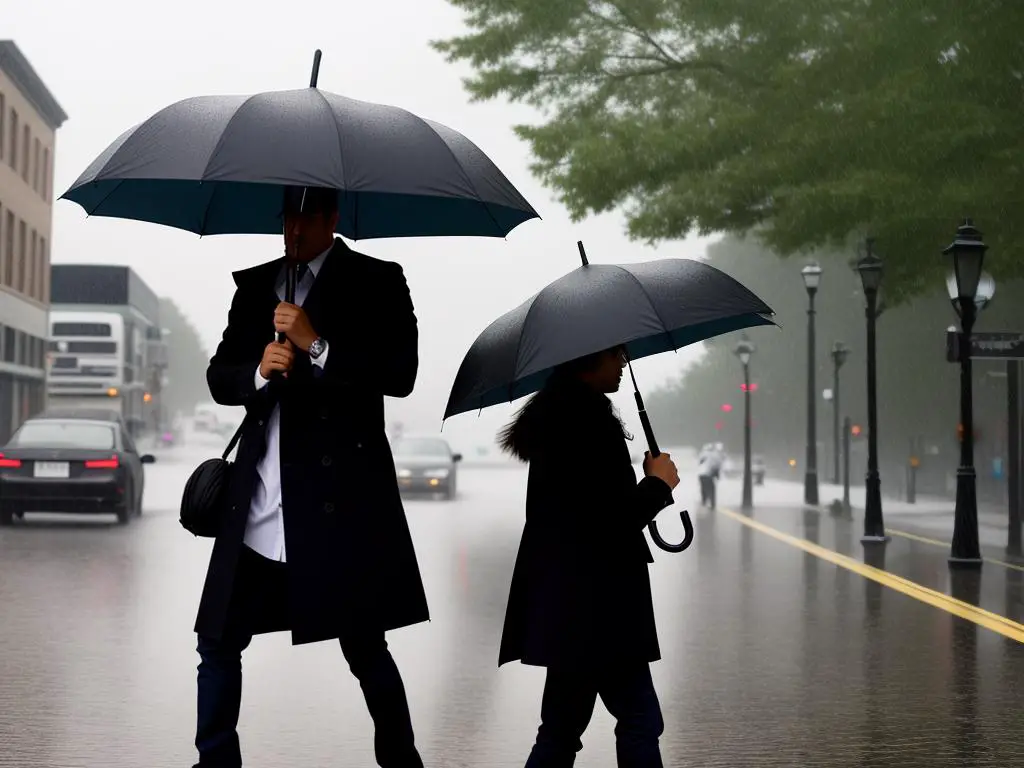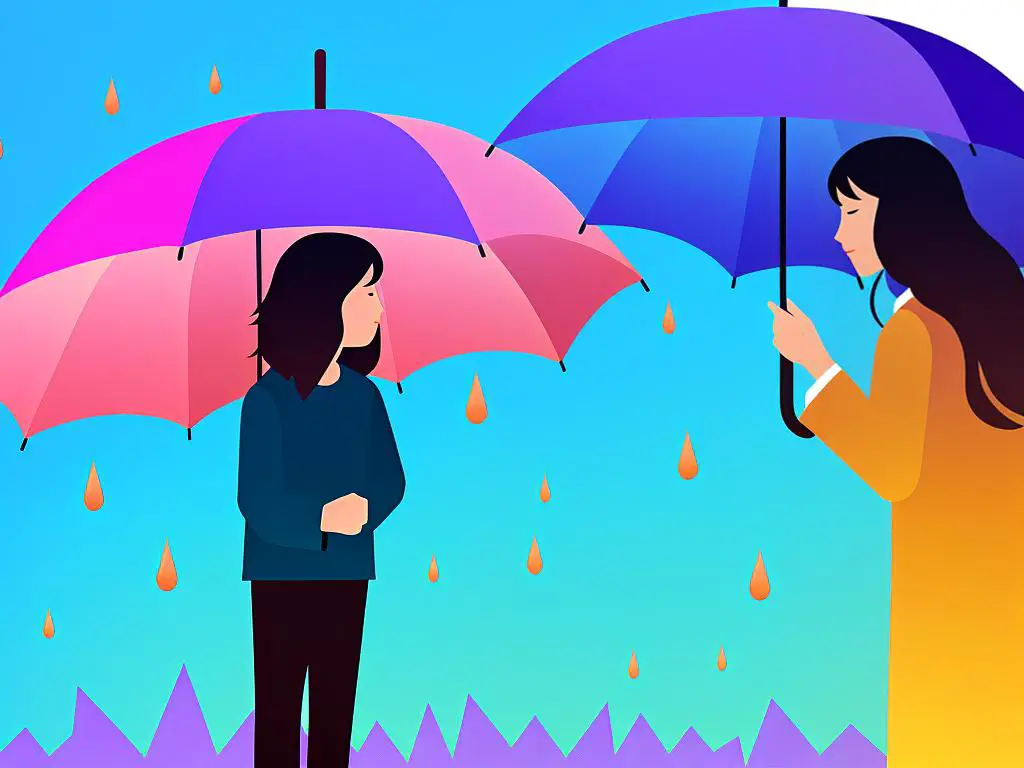Weather, a ubiquitous yet unpredictably formidable component of life, has often served as a refuge for various excuses in our daily interactions. From delaying appointments to cancelling commitments, many people resort to blaming adverse weather conditions. This discussion will unfold various aspects of bad weather excuses, whisking you through a plethora of examples, varied from the banal to the unexplored. Delving further, we will unpack the psychology cloaked behind these weather-related excuses, investigating the intertwined realms of mood, mindset, personality, culture, personal beliefs, and environmental factors. Proceeding further, we will extend our discourse to the tangible impacts of these excuses that permeate personal relationships, professional spheres, and societal norms, all the while, lending possible solutions to effectively deal with such situations.
Overview of Bad Weather Excuses
Understanding Bad Weather Excuses: A Comprehensive Dive into this Human Tendency.
Bad weather has a knack for serving as a convenient shield to justify an array of situations, ranging from skipping work to cancelling plans. Although the use of such excuses varies from person to person, it’s clear that inclement weather, in many forms, often provides a convenient scapegoat.
The Common Excuses: From Pervasive to the Unique.
The “bad weather” tag familiarly resonates with excuses like “it’s too cold,” or “it’s raining too heavily for me to drive.” These are common and often valid reasons to avoid certain situations or commitments. Poor driving conditions due to weather, for example, can indeed pose genuine safety risks. However, sometimes, these weather-related justifications are used more as a convenient and socially acceptable out.
Less familiar but equally noteworthy weather excuses could include those linked with extreme weather phenomena. Possibilities like a ‘hurricane’ or ‘flood’ take the scale of legitimate weather-related reasons to an entirely different level, especially in areas prone to such climatic events.
Understanding the Psychology: The Justification Lever
Bad weather appears to provide the perfect scaffold on which humans construct justifiable reasons for preferential behavior or avoidance. The rationale behind this might link back to our innate tendency to seek comfort and safety. Bad weather inherently conveys an element of risk or discomfort, which gives people an acceptable reason to choose personal comfort over obligation.
Additionally, unpredictability of weather may also serve as a ground for psychological manipulation, where individuals tend to leverage this randomness to shape their desired narratives or protect their interests.
Overall, the use of bad weather excuses is likely a blend of legitimate safety concerns, personal preference, and manipulation of social norms.
Possible Ramifications of Weather Excuses
While on the individual level, bad weather excuses may feel harmless, they can cause significant disruptions if adopted widely. Imagine a scenario where every person at a particular job chooses to stay home because of a slight drizzle. This could result in loss of productivity and service delay.
Moreover, it could also potentially lead to a cry-wolf effect, where people’s constant usage of these excuses ends up diluting the gravity of genuine bad weather situations.
Final Thoughts: Understanding the Balance in Weather Excused Decisions
It’s important to grasp the subtle difference between decision-making rooted in safety considerations in adverse weather and the use of weather as a scapegoat for personal gain. While it’s crucial to respect the former, the latter can spawn unnecessary disturbances and breed distrust. Both on an individual and community level, we should address weather-related excuses by striking a fine balance between empathy and critical questioning.

Psychological Aspect of Weather-Related Excuses
Underlying Factors: Grasping the Motifs of Weather-Based Excuses
The weather undeniably plays an integral role in our everyday lives, greatly affecting our emotional state, thought process, and actions. The choice to use weather as alibis to shirk specific responsibilities or avoid upcoming events is a fascinating facet of human behavior. It is often deeply entrenched in a complex interplay of psychological, cultural, and environmental factors.
The Mood-Weather Connection
Scientific studies have underlined the undeniable link between weather and mood. Sunny, pleasant weather often elevates mood and productivity, while gloom and inclement weather can lead to feelings of lethargy or depression. Consequently, individuals may use bad weather as a psychological excuse to avoid certain tasks or situations that they perceive as challenging, strenuous, or unpleasant.
People are more likely to associate negative weather conditions with negative experiences or emotions. In a psychological context, rain, snow, or storms may serve as a subconscious manifestation of personal discomfort or distress. The adverse weather provides a seemingly valid reason to avoid discomfort, tacitly endorsing withdrawal or avoidance behaviors.
Mindset and Personality Influences
Individuals with a tendency towards pessimism or negativity – often called ‘glass half empty’ people – may be more prone to use bad weather as an excuse. Similarly, introverted or socially anxious individuals may utilize bad weather as a ‘safe’ means of avoiding social engagement or interaction.
Cultural and Personal Beliefs
Different cultures or personal beliefs may directly or indirectly influence the propensity to use weather-based excuses. Certain individuals or cultural groups may deeply respect or be fearful of the forces of nature, considering adverse weather as a sign or omen. In such cases, bad weather excuses may not just be a way to avoid responsibility, but also a manifestation of deeply ingrained cultural norms and beliefs.
Environmental Factors
On a practical level, severe weather conditions certainly can disrupt plans and routines, posing significant logistical challenges. However, the severity of weather conditions required to genuinely impede activities can vary significantly from person to person. This variance is often more reflective of one’s personal contextual view or lifestyle, such as one’s geographical location, physical capacity, health status, or level of preparedness for unexpected weather events.
A Deep Dive into the Psychology of Bad Weather Excuses
Our use of bad weather as an excuse is a behavior rooted deeply in our individual psychology. It is an intricate blend of personal attitudes, cultural factors, and immediate environmental conditions. Grasping the reasons why people habitually resort to weather-related excuses can be a window into understanding their personality traits, mindsets, emotions, and cultural influences.

Real-Life Consequences and Handling of Weather-Related Excuses
Impacts of Weather-Based Excuses in Real-Life Scenarios
Many people use the weather as a get-out-of-jail-free card when they either cannot or do not wish to honor certain duties or commitments. The scenarios could range from evading a work meeting, putting off a societal gathering, or rationalizing chronic lateness or nonattendance. These weather-induced excuses, however, do more than just ease off immediate stress. They have ripple effects on personal interactions, professional standing, and even disturb societal principles of trust and responsibility.
Personal Relationships and Weather-Related Excuses
A weather-related excuse, when used appropriately and sparingly, can be acceptable in a personal context. However, excessive or manipulative usage can lead to issues around trust and can strain relationships. For instance, using bad weather as an excuse too often to avoid gatherings or meetings can raise skepticism among friends and family, affecting their perception of the individual’s commitment and credibility in the long run.
Professional Repercussions
Professionally, weather-related excuses can lead to negative impacts on an individual’s reputation and career growth. Employers and colleagues might question the reliability and commitment of a person who frequently uses bad weather as a justification for temporal inconsistency or failed commitments. It can even create implications for promotion or salary increments, as it indicates a lack of responsibility and dependability.
Societal Impact
On a broader societal level, the habitual use of weather-related excuses fosters a culture of mistrust and lack of accountability. This behavior, if pervasive, depreciates societal norms, values, and standards related to integrity, diligence, and responsibility.
Strategies to Handle Weather-Related Excuses
For effective management of weather-related excuses, it’s essential to develop strong communication skills, create contingency plans, and promote a culture of accountability.
Instead of resorting to excuses, open and proactive communication about the weather conditions and potential impact on obligations should be encouraged. Building a culture that promotes understanding and empathy towards legitimate weather issues can cultivate trust and respect among individuals.
Across professional and personal spectrums, it’s favorable to devise contingency plans for bad weather conditions. This can include flexible working options, commutation plans, or reschedule alternatives. It promotes the message of commitment and reliability despite weather challenges.
More broadly, promoting a culture of accountability discourages the abuse of weather-related excuses. This can be cultivated by setting and adhering personal and professional standards, emphasizing the downfalls of credibility loss and the importance of trust in relationships.
In conclusion
While weather can be a valid reason to divert from commitments, its habitual misuse as an excuse bears significant repercussions. It’s imperative to foster a culture supporting transparency, contingency planning, and accountability to manage these effectively.

Having embraced the breadth of this topic, we can see the potent influence weather exerts on our mindsets and daily choices. Bad weather often masks our reluctance, fear, anxiety, or even strategic tactical advantage, subtly shaping our actions and the stories we tell others and ourselves. While it’s a universal phenomenon to use adverse weather conditions as shields for our shortcomings, recognizing this pattern may actively contribute to personal growth and improved interpersonal relationships. Therefore, instead of concealing behind the curtain of bad weather excuses, weathering the storm and confronting our actions can lead to a richer, conscious life. Remember, as much as the weather can make us, we can also endeavour to unmake the reasons we allow it to control.

Recent Comments